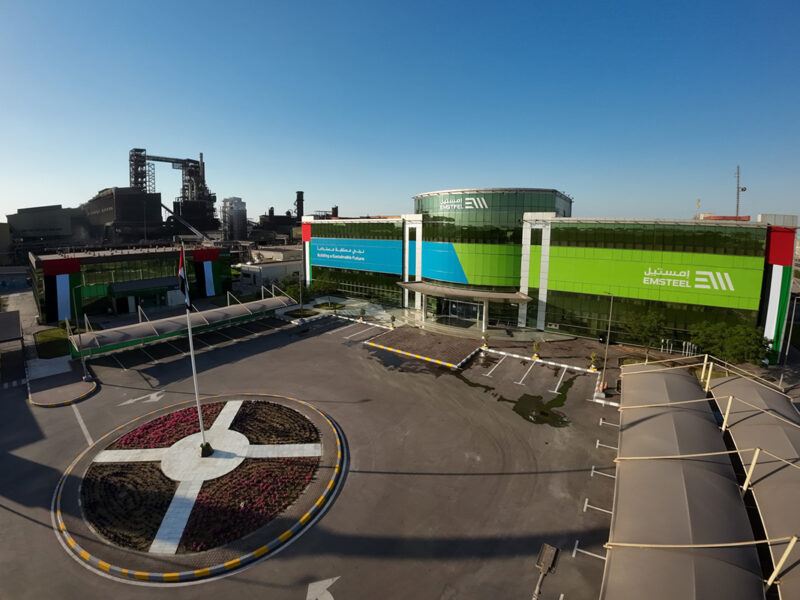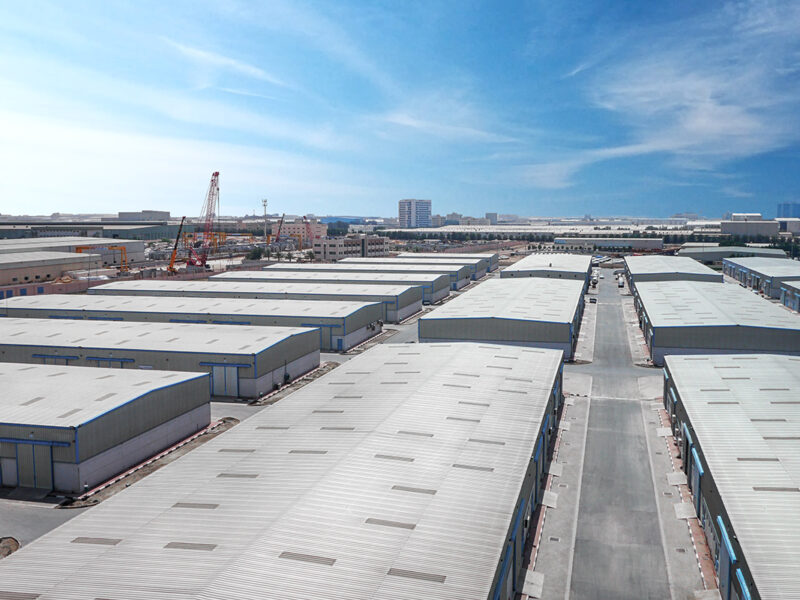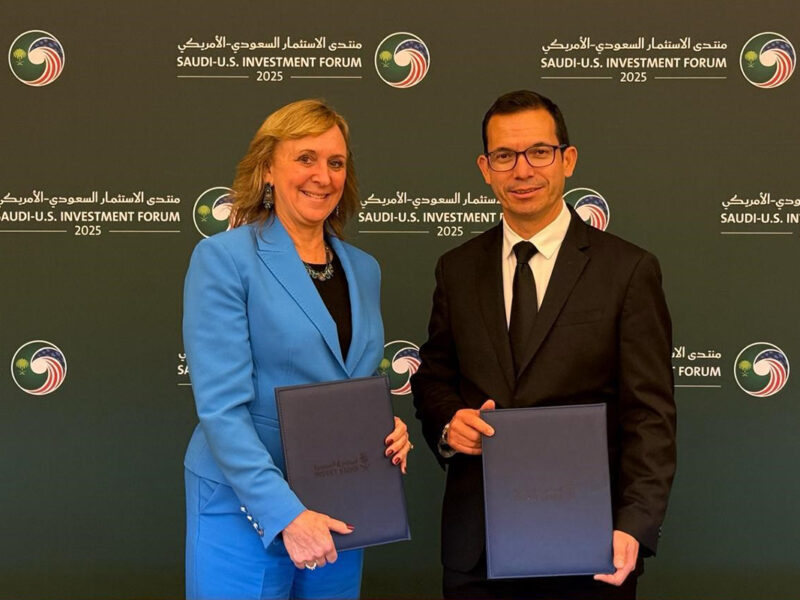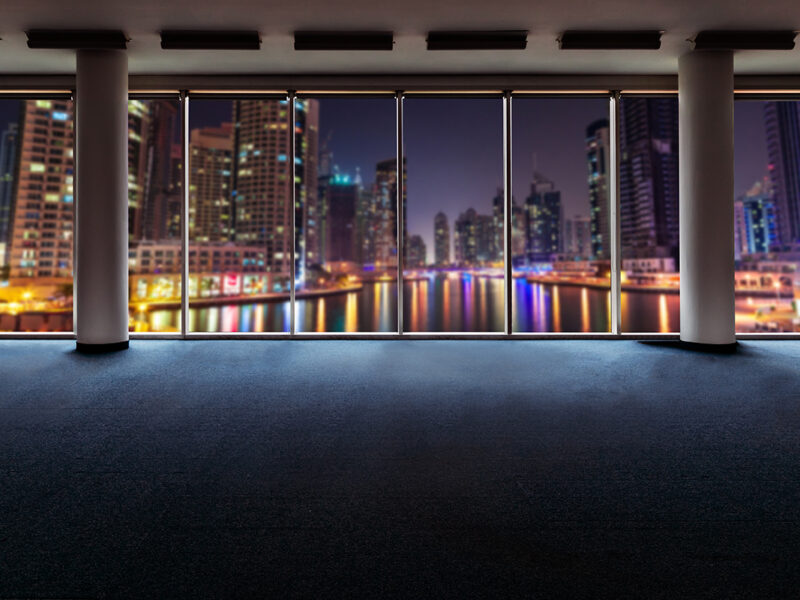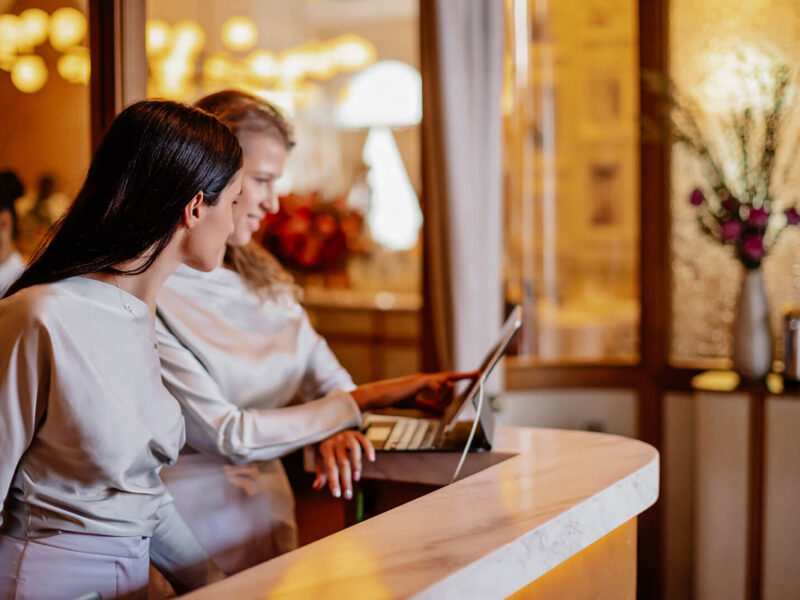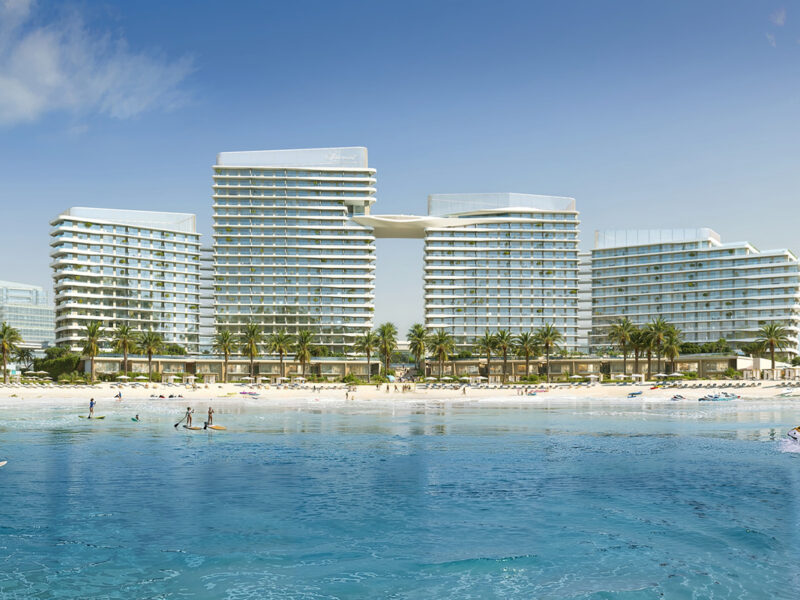Arabian Business exclusively publishes extracts from Dubai business legend Khalaf Al Habtoor’s new autobiography. Here, Al Habtoor recalls the moment he decided to leave his old job and set up his own company.
Ever since my resignation from Al Mulla, every minute of my time had been dedicated to seeking a decent income. Mohammed Saeed Al Mulla was far from happy to see me go. “How can you quit when you don’t have any money?” was his reaction.
That was a good question. There were moments when I reflected that my decision to leave had been hasty. My paltry savings were running out fast and I was now responsible for providing for my wife and two sons, three-year-old Rashid and one-year-old Mohammed. I regretted that living in Abu Dhabi meant I hadn’t been around to see Rashid take his very first steps or utter his first words, but I knew that my father had lovingly watched over him as my surrogate and I was resolved to give both children every chance to get ahead… For their sake, failure wasn’t an option. There was no time to waste.
I was pleased that I was no longer a ‘weekend Dad’ and each time I gave my beautiful boys a cuddle, I couldn’t help wondering what their futures would look like. Responsibility weighed heavily upon me because I knew in my heart that their lives would in large part be shaped by my decisions. For their sake, failure wasn’t an option. There was no time to waste.
I perceived that Dubai was in dire need of new hotels, villas and apartments to accommodate the newcomers, and was eager to establish a construction company or build a fine hotel. However, such grandiose projects were way beyond the reach of someone like me without access to land or capital. I had no choice but to cut my canvas according to my means, which I did literally.
Owning a hotel was out of the question, but after coming across a brochure advertising beautiful Scandinavian-manufactured tents, I thought they were the next best thing. I imagined myself as a major importer of tents with warehouses and shops.
Excited by the venture, I ordered a number of tents and scraped together the cash to pay for them. But what a terrible disappointment when the consignment finally arrived! They had appeared huge in the catalogue, but in reality, they were one-person tents used by Western outdoor types for camping.
I had announced their imminent arrival with great fanfare and made the mistake of unveiling them to a few of my friends. They stared at them, touched them, held them up for inspection and then broke out in uncontrolled laughter. My humiliation wasn’t over. Each time I got together with my friends, my tents were the butt of their jokes.
There wasn’t much call for such leisure items in late 1960s Dubai. I was unable to offload them and they were left to gather dust along with my fantasy. Al Habtoor Tenting was not to be. Thank goodness for that!
Undeterred, I borrowed 50,000 riyals from Mohammed, my brother, to import refrigerators from Europe. Finally I was on the right track. Just about everyone I knew wanted one. Within no time I had sold all of them to people I knew. Everyone was happy; everyone, that is, except me. They all loved their smart fridges but were unable to pay for them. I chased those payments for ages without success.
You’re probably wondering why I didn’t insist on getting paid up front. It was different in those days. People generally trusted each other. It wasn’t that my friends had contrived to fleece me. They had every intention of honouring their word. It was just that most of them were still living from hand to mouth. When they were presented with the choice of putting food on the table for their families or paying me, there was no contest.
After all my efforts I was practically penniless, in debt to my brother and feeling slightly dejected. I thought it might be helpful to approach Mr Al Mulla to ask for his advice. He listened patiently to my tale of woe and seemed interested in my ideas until he finally said, “Why don’t you come and work for me again? Your old job is waiting for you.” That wasn’t what I wanted to hear at all. “Thank you very much for your offer, Sir,” I said, “but I want to be my own man.”
It was time to gamble even if that meant going for broke. This is it, I told myself… sink or swim time. I decided to aim high and set about establishing my own engineering company. I did it on a ridiculously low shoestring budget. My capital could hardly cover laces, never mind shoes.
Article continued on next page…
Step one was to open an office; not an easy task when I didn’t have enough cash for a week’s rent. I approached landlords, who, as you might expect, were not amenable to handing me an apartment key without a substantial deposit and several months rental in advance. It looked like a hopeless quest, until Rashid Al Yateem saved the day. Rashid, who was working for a substantial local businessman and property landlord, Mohammed Abdullah Al Gaz, knew my brother Mohammed and was inclined to help me out. Rashid was very encouraging and agreed to let me have a one-bedroom flat in Deira that happened to have a magnificent view of the Creek. “Don’t worry about paying rent until you land your first project,” he said. I will always be grateful for his strong faith in my abilities.
Once I had spruced up my new place, the next step was to fill it with desks and chairs which were all bought second-hand. I converted the bedroom into an office for myself and designated the living room for employees. The result was far from being confidence-inspiring. The walls were beige, the doors brown and the cheap desks were all made of unfriendly cold steel. Within a short time, a telephone was installed, but I didn’t have spare cash to buy a typewriter and telex until several months later. It took a year before I was able to purchase one of those old-fashioned messy roller printers.
The best thing about that office was the wonderful panorama. It was fascinating watching the seabirds skimming the shimmering water and the activity around the dhows. Unfortunately, the view, as soothing as it was, couldn’t make up for the horrible fishy odour that most days wafted in through the open windows. Donald Trump would have turned his nose up at that office. I was proud of it.
Step three was to find engineers who would work with me for a time without receiving a salary. That seemed like an almost impossible task until two temporarily out-of-work ex-Al Mulla employees agreed to come on-board. The first was Mohammed Younes, a Palestinian, who was married to my friend Riad Sadik’s sister. He had worked as a purchasing officer with my former company. He possessed minimal educational qualifications but I took him on because I was close to his family and thought that he would be loyal. That turned out to be a good decision.
The second, Michel Aziz, a serious, reliable Egyptian, was an architect by profession. He did, however, understand the basics of engineering through observation and practice.
“I can’t promise you a salary immediately,” I told them. “But I can undertake to pay you as soon as the work comes in.”
From then on, I faithfully wrote down what was due to them on a notepad and looked forward to the day that I could reward them for their trust. While I was busy with the start-up, Riad Sadik was still employed by Al Mulla. As always, we met up most Thursday evenings when I kept him up to date with developments. Much to my delight, when the company had been up and running for six months or so, he said, “I am ready to leave Al Mulla. Let’s work together.” From that day, he has been my business partner. He didn’t have much money either, but he came with expertise, technical know-how, and experience which, when added to my administrative know-how and business acumen, meant our small team was complete.
All we needed now was a project. That was easier said than done as the company didn’t have a track record. We had nothing to show a prospective client in terms of design or quality. We sat around for two months trying to drum up business, until a very well-known and influential local businessman, Juma Al Majid, asked us to build a modest house for one of his relatives, Majid Bin Khalfan. After negotiation the contract price was fixed at 60,000 Qatar-Dubai riyals. We were young, enthusiastic and ready to work day and night to impress our first client.
The home was finished on time and when we saw that Mr Khalfan was entirely happy with the finished result, we breathed a sigh of relief. We made hardly any profit from
that venture but that didn’t bother us at all. That simple construction was a turning point. Al Habtoor Engineering was no longer just a name on a sign. We were
ready for anything now.
Our second project was to construct a road from Sharjah to Ras Al Khaimah that was financed by the government of Saudi Arabia. The main contractor was the Saudi construction company Bin Laden, which was well-known throughout the Gulf. My old company Al Mulla was one of Bin Laden’s subcontractors on that job via Azmi Haroun, the resident engineer of the project’s Italian consultant, Saouti.
Article continued on next page…
Our part of the overall job was to build box culverts on site – small bridges over narrow tunnels that allow waters to flow. That also turned out fine and was a welcome boost for our bank balance. Little by little, our reputation grew until small to medium jobs began to come in slowly but steadily. That’s not to say that there weren’t problems. It was frustrating waiting for imported materials to arrive and occasionally we would be faced with a shortage of labour. Our main difficulty was getting paid for our work and due to our lack of management experience, we didn’t always know how to handle those situations in an effective way. As some of you will know only too well, there is nothing more disheartening than to put all your care and energy into a job well done and then have to struggle to get due recompense.
Long after, we had built an apartment building in Dubai for a Palestinian gentleman living in Sharjah. Now that it was fully tenanted, he began delaying payments. His never-ending excuses as to why he couldn’t pay and promises that he would very soon that never manifested really got to me. We had assisted this man to come up with financing for the project, which, when completed, fully adhered to his specifications and quality demands and was delivered on time; yet, here he was giving us the runaround. During yet another meeting with the guy to talk about payments, when he trotted out the same old excuses, I could feel my anger bubbling up inside. I felt a terrible sense of injustice. My tension rose until I finally snapped. “Listen here,” I said. “Either you pay us our money now or I will fetch one of our Caterpillar bulldozers and smash that building to the ground. So you had better warn your tenants to get out.”
I was young and hot-tempered. I would never have carried out that threat, but I must have looked so fearsome that he certainly believed I meant it. I wouldn’t advise anybody else to try this tactic on payment-shy customers. But in this case, at any rate, it worked like a dream. I don’t get enraged about such matters these days. Chronic defaulters are dealt with by my lawyers and sometimes have to answer to the courts.
With a healthy — but still fairly modest — bank account, I was able at last to move my family [from a palm frond hut] into a real house. What a fantastic feeling that was! In 1970, I built a house opposite the grand mosque in Jumeirah in partnership with my elder brother. We split all the costs 50–50. The whole family – my wife and sons, my parents, my younger brother Sultan plus Mohammed and his two wives and children — moved in there together. We divided it into sections. My wife and I had two self-contained rooms on the first floor for us and our children. As you might imagine, it was very crowded, but we were used to that. At least we were no longer victim to the elements and as a plus, we were surrounded by good neighbours, including some of my father’s Maktoum family relatives.
In those early years, I put my heart and soul into my company. There were daily obstacles to overcome. When I wasn’t seated at my desk at the office, I was at meetings with architects and consultants, sorting out problems with the labour force, forging connections or trying to procure new business. My mind was constantly racing and I could hardly find an hour for myself or my family. Things were looking up. The family was enjoying a vastly improved lifestyle, the company was running reasonably smoothly, there were funds in the bank and we were paying our employees and creditors promptly. But somehow that wasn’t enough. I had too many ideas for new business buzzing around in my head to sit back and relax. What bugged me most was my ambition to own a hotel, which was one that could not be fulfilled without a large plot of land on which to build.
At the time, Sheikh Rashid was making plots available to locals willing to invest in Dubai’s future by building something useful. I didn’t know the Ruler very well, but I hoped he would support my own endeavours. My father, a frequent visitor to his majlis, pushed me to go along with him.
Sheikh Rashid was usually deep in conversation with important people, so I would spend those early visits sipping cardamom-scented Arabic coffee in small cups constantly refilled by the Sheikh’s old retainers from a tall Arabic coffee pot with a pelican spout. I didn’t always get to converse with the Ruler, but it was enjoyable meeting new people from Dubai and all over the Arab world.
Khalaf Ahmad Al Habtoor: The Autobiography is out on 13 November.

